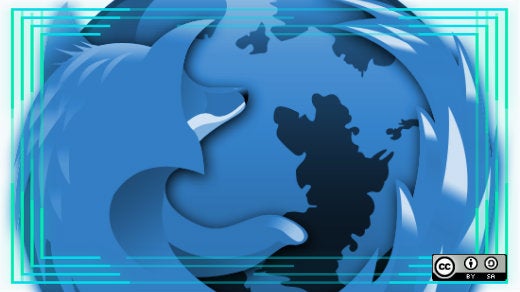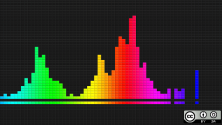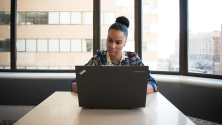Open source communities have always been my place to learn.
I love the opportunity and inspiration of open source participation—the chance to tinker with and influence new innovation and social change. Seeing my contributions become part of something bigger continues to be both an empowering and humbling experience.
Open source contribution is assumed to be a technical endeavor, but the invitation of open is much more than coding. Open source communities sparkle with diverse opportunities—to teach, learn, and grow as people. Public speaking, leadership, design, market research, quality assurance, and governance opportunities (among many others) form a rich mosaic for personal development. This is open source participation. I've achieved so much more as part of community than I ever did through formal education, which is why I'm so keen to give back by teaching contribution to others.
But open source pathways are often difficult to navigate. You may have been told at some point to "ask for help in IRC" or "it's on the Wiki." There are other go-to directions for new contributors that make participation a continual test of patience, confidence, and blind trust. And there's a minefield of other challenges including lack of mentors, missing documentation, non-intuitive processes, and abandoned or outdated task lists. In larger communities, like Mozilla, it can be difficult for volunteers to determine which tasks are important for project goals. People and projects are missing out on the potential that engaged participation can bring.
We believe education can change that.
Open education to increase and improve participation
Mozilla has a rich history of empowering people on the open web through open education. From an early partnership with P2PU, and the 2010 Mozilla Festival of Learning, Freedom, and the Web, grew initiatives like the highly successful Mozilla Webmaker, which aims to build a more web-literate world, and Mozilla Open Science, which strives to teach researchers open technology skills to advance science.
With this in mind, I am excited to share that for Mozilla Community in 2015—and as part of our vision for a virtuous circle between contributor and project—is building (and leveraging existing) Open Educational Resources (OERs) for the community. Resources that scale with contributor experience and project goals, resources that provide opportunity for personal growth, and that advance learning for new and experienced skill-sets.
In recent months, we've been writing and publishing curriculum to our educational platform, a forked version of P2PU's fantastic Course in a Box. We're building modular content that provides clear, connected learning pathways for personal growth and project impact, in the model of "participation ladders" as milestones for learning. We're starting with curriculum that teaches market research, and a series that builds stronger speaking skills to empower people who want to speak about Mozilla with resources and learning opportunities to help them do that really well.
Leveraging the successful Mozilla Reps program as a launchpad, we're also focused on education that builds strong leaders through diversity training, conflict resolution, and mentorship. Our hope is that contributors arrive at new opportunities feeling supported, empowered, and challenged (in a good way), and that through personalized recognition, our virtuous circle grows as a rich example of how open source and open education can change the world for people and the projects they care about.
Mozilla is a warm and welcoming community. If you'd like to learn more or contribute to Community Education at Mozilla, please join our next Community Education Call.
Education
A collection of articles from educators, students, advocates, parents, and more who are implementing open source in education and working toward a more open knowledge base for everyone.







2 Comments